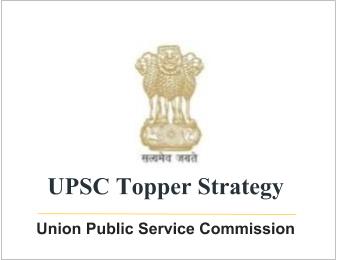
UPSC Topper Strategy for Essay Optional by Puneet Gulati (Rank-319)
Essay :
Essay is often seen as a poor cousin of the other more important papers in the Mains Examination. While GS and each of the optionals are worth 600 marks each, Essay contributes a small 200 marks to the total. But just like the interview, these 200 marks often prove to be the Waterloo for many candidates. In CSE 2009, UPSC has been particularly strict in giving out these 200 marks. Not many candidates managed to score over a 100 marks and there have been a shockingly high number of double and even single digit scores in the Essay this time. While none of us can justify the extremely low scores given out by UPSC, I do think that there does exist a strategy for tackling the Essay paper, which, if adopted and implemented thoughtfully, can reap a decent 50-70% mark in the Essay. Such marks will ensure that a candidate does not fail to make it to the list just because of poor showing in the Essay.
The strategy that I propose for the essay is based on my own experience as well as what I learnt from my English teacher during my school days. In CSE 2009, I scored 140/200 in the Essay. I wrote on “Good Fences Make Good Neighbours”.
1. Preparation for the Essay
Regular reading is the only stable and time-tested way to prepare for the Essay. There is no short-cut to improving one’s
language. One must read and learn to apply what one has read. Those attempting the paper in English, should read the Editorials of papers like the
Hindu, the ToI, Indian Express, Hindustan Times etc. One should also try remembering some quotations that one comes across while reading books etc. Maintain a notebook/word document for keeping track of such quotations. Let me recommend here “Inspite of the Gods” by Edward Luce as a valuable read on India before you go for your Mains. Practice Writing Essays for those who are not very sure of their abilities to tackle Essay paper well. Write at least 4-5 essays before sitting for the Mains in Oct-Nov this year.
2. Attempting the Essay Paper
a. Choosing the Essay – This is the most critical but curiously most under-rated part of the paper. Choosing the right topic to write on is half the battle won. Spend at least 5-10 minutes carefully studying the topics. Many candidates pick up a topic and start writing and then realize they don’t have enough to talk about. They end up wasting time as they try choosing another topic later. This year there were 5 topics:
i. Are our traditional handicrafts doomed to a slow death?
ii. Are we a ‘soft’ state?
iii. The focus of health care is increasingly getting skewed towards the ‘haves’ of our society
iv. Good fences make good neighbours
v. Globalism vs Nationalism
The candidate must study each topic and decide which of these topics gives him the maximum number of ideas. Mind-mapping or jotting points may help. Take up each topic and ask yourself, “What can I say about this?” For some topics you’ll not be able to proceed beyond two lines. I felt this when I looked at “Handicrafts” and “Healthcare” questions. Both these essays are asking us questions – Do you agree with the statement? (explicitly in the case of ‘handicrafts’ and implicitly in the case of ‘healthcare’. In fact, all other questions are doing this, except “Globalism vs Nationalism”). Candidates must answer the question no matter which of these two topics they choose.
Writing a general answer without taking a stand when the question is asking you for a stand will not fetch you high marks because then you would not be answering the question. Hence, please, please, please answer the question. In my case, I realized I would not be able to handle either of these topics even if I agreed with the statements because of very limited knowledge about the arguments ‘for’ or ‘against’ the topic. Having rejected these two topics, I examined the other three. I thought about the question on “Soft” State. It was an inviting topic but I realized that I would not be able to provide any interesting insights into the issue. Moreover, I was worried I may inadvertently overlook some important arguments. Hence, I decided to examine the other two questions – Good fences and Globalism vs Nationalism. Topic 5 offered a discussion based essay where there was nothing obvious to agree or disagree about except maybe that there is necessarily a clash of ideologies (this could be questioned), while topic 4 required me to take a stand. I spent some time thinking about the arguments I could offer in both essays and realized that ‘Good Fences’ offered me greater creative license. To me, this was important as I was free to offer a much wider perspective on it. In addition, I could recall the poem – Mending Wall (by Robert Frost….I had studied it in class X) from which the line “Good Fences Make Good Neighbours” was taken. Moreover, I felt that this essay would be attempted by fewer candidates because of the nature of the question. (Please note that this criteria helps only those who are fairly sure of their ability to handle the topic. If you are not sure of your language or knowledge about the topic, please choose topics entirely on the basis of what may be easier to handle)